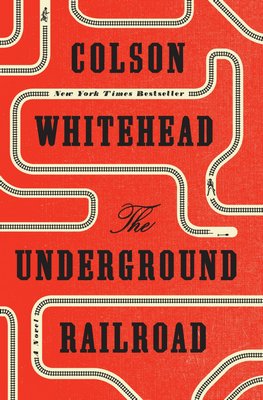
Colson Whitehead has been justifiably compared to Ralph Ellison, Dashiell Hammett, Thomas Pynchon and Jorge Luis Borges. His narratives slip from the realistic to the fanciful and back again with dazzling finesse.
His previous novels are “Sag Harbor,” a coming-of-age story inspired by his own childhood summering in Sag Harbor; “Zone One,” a zombie story; “The Intuitionist,” “John Henry Days” and “Apex Hides the Hurt.” Also among his published works are the essay collection “The Colossus of New York” and “The Noble Hustle: Poker, Beef Jerky & Death,” a nonfiction account of the 2011 World Series of Poker, in which he took part.
He has been nominated for the Pulitzer Prize and has been awarded a Guggenheim fellowship and the prestigious MacArthur Grant. His latest novel, “The Underground Railroad,” (Doubleday, 306 pp., $26.95) is the most recent selection for the Oprah Book Club, and, incidentally, just won the National Book Award.
When, as a child, Mr. Whitehead first heard of the Underground Railroad, the network of secret passages and safe homes by which slaves escaped to the North, he thought of it as a subway running underground.
He has used this concept in his novel, in which there is an actual railroad—with engineers, station masters, stops and conductors—by which slaves escaped. The image is startling, but it doesn’t become the focus of the novel. It figures as an almost concrete metaphor for escape to liberty. It is the means by which his protagonist, Cora, moved from state to state. When she discovers skyscrapers in South Carolina, we realize that Mr. Whitehead has slipped the bonds of conventional fiction.
Cora is a young slave who has been brutalized by her master, gang-raped, beaten and whipped. Pepper is rubbed into her wounds to make her pain even more unbearable. She is taken to the “hob,” a place where the damaged and the insane are kept, and where she slowly recovers, thanks to the ministrations of other inmates of the hob.
After a time, she is approached by Caesar, an educated slave, who recognizes the qualities of independence and grit that she possessed. He tells her of the rumored Underground Railroad. She agrees to accompany him as they seek to find it.
They are pursued by a monomaniacal slave hunter named Ridgeway. One of his associates wears a necklace made of human ears, a grim reminder of his success. They escape but only after Cora has killed one of the slave hunters.
Moving ever northward, Cora and her varied comrades discover newer and subtler forms of subjugation, societies that seem, but are not, benevolent.
Cora moves to North Carolina, where she discovers what Mr. Whitehead calls “the Freedom Trail,” on which bodies are hung from the trees as far along as the eye can see. She is sheltered by an abolitionist who keeps her in his attic. The echo of Anne Frank is unmistakable. But after a time her presence is revealed and Ridgeway finds her. He had been hunting for her with the same single-mindedness of Javert hunting for Jean Valjean.
Yet once again she escapes, this time to Indiana, to which she is led by yet another man, Caesar having been captured and killed.
“The Underground Railroad” is not strictly historical fiction, as you may by now have guessed. Mr. Whitehead mixes history and even science fiction. We often read of how it might have been, rather than how it was. Nevertheless “how it might have been” is entirely believable, and there are parallels to “what was.” The eugenics and experiments on escaped slaves are not unlike the Tuskegee study of the effects of untreated syphilis on black males, a study which ended only as recently as 1972.
Even some of the smallest details in Mr. Whitehead’s book can be disturbing. Like the slave who is referred to as “it,” a usage that is as shocking in its own unexpected way as anything more violent.
“The Underground Railroad” has a weight and a gravity that Mr. Whitehead has only hinted at in his previous books.
But, of course, he is writing about America’s most shameful and horrid experience. “The Underground Railroad” is a profoundly unsettling and compulsively readable book. I believe it will last.